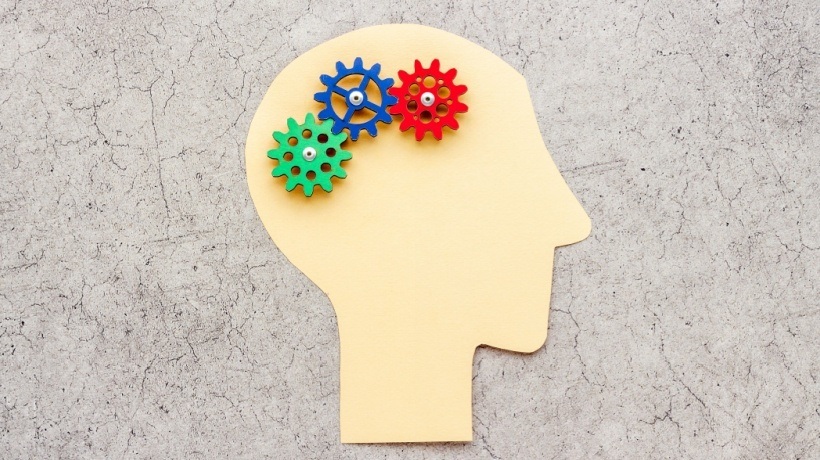What Is The Cognitive Load Theory?
Processing the mind in a way that it can grasp knowledge beyond the limit can be tough for an individual. Let’s learn more about what is the main factor associated with effective learning strategies and how we can use them in the right direction and optimize learning.
While we focus on learning, it is important to consider the factors that influence it, such as our brain’s cognitive load. This idea was first presented by German psychologist Sweller in the 1980s, highlighting the fact that students’ working memory is finite. This concept plays an evident role in navigating our learning capabilities. Not only does it enhance the efficiency of learners but educators as well. With this view, let’s continue reading about cognitive load, its types, and how learning optimization relates to cognitive science. Some key points:
- The cognitive load hypothesis explains how humans learn and absorb information.
- An excessive amount of new material or inadequately planned education might cause cognitive overload.
- Simulation can reduce cognitive burden and maximize information processing.
Types Of Cognitive Load Theory
Intrinsic Cognitive Load
It is the natural mental load that is related to the intrinsic complexity of the learning for the learning materials. An inherent degree of difficulty connected with the problem, task, or learning environment.
For instance, the process of inserting a cannula involves several components, making it challenging for beginners to understand and requiring repetition to become proficient.
Extraneous Cognitive Load
The nature of the learning environment or Instructional Design or how learning activities are organized, presented, or planned might make them more challenging.
For example, several things can make learning how to insert a cannula more challenging, such as unclear instructions or goals, incompletely stated stages, or having to practice on a moving patient in a crowded, noisy clinical situation.
Germane Cognitive Load
The basic difficulty of a learning task makes sense and aids in the learning process in part. This is a task’s relevant load.
For instance, successful cannula insertion requires the ability to palpate a vein. It is a necessary component of the work since it is a part of the process.
Guiding Τhe Terrain Of Effective Learning
Chunking Information For Optimized Learning
A compelling technique for lowering the cognitive load is to crumble down information into absorbable chunks. For instance, memorizing a series of information is hard but dividing them into smaller pieces makes it easier for brain retention. Information processing becomes easy and digestible if taken substantially.
Aligning With Cognitive Architecture
Getting to know about the brain’s functionality is necessary for learning optimization. The brain possesses a short-term working memory with finite space and a long-term memory with comprehensive storage. To orientate with this, educational psychology should encourage effective learning strategies for information processing.
For instance, when starting a new subject, we start with the basics of it and its concept to fill our mind and let it know. Gradually building the pattern for better attention span and memory retention.
Multimodal Education For Increased Involvement
Multimodal learning combines auditory, visual, and haptic components to accommodate a variety of learning preferences. Learners are engaged in several ways while using multimedia presentations, diagrams, and visual aids, which lessens cognitive strain.
For example, a biology student can’t rely on verbal explanation of a cell division; visual diagrams or animations will appeal to his clear understanding of the concept, making it more accessible.
Active Learning Techniques For Adaptable Participation
Engrossing learners vigorously in the learning system decreases cognitive load and provides better understanding. Tasks such as problem solving, group debates or discussions, or hands-on practice boost concentration with the study material.
For instance, students can actively use and illustrate the knowledge they learn in a history lesson by taking part in a discussion or practice rather than just passively absorbing it.
Minimizing Extraneous Cognitive Load Through Clarity
Straightforward instructions and organized content lessen extraneous cognitive load, letting learners focus on the study material without irrelevant confusion.
For example, in an eLearning module, a simple, straightforward, user-friendly interface navigates content smoothly.
Spaced Repetition For Maintaining Long-Term Memory
According to a psychological phenomenon known as the spacing effect, long-term memory recall is improved by repeated exposure to material at different times. Learning plans that use spaced repetition gradually strengthen memory.
For example, students can improve retention and memory during an exam by reviewing the material occasionally over a few weeks instead of cramming the night before.
Feedback And Analysis For Cognitive Coordination
Giving constructive criticism and promoting insight aid students in incorporating new material into what they already know. Germane cognitive load is influenced by this active cognitive processing.
Key Takeaway
In the field of education, a key to successful Instruction Design and inspired students is optimizing learning through a knowledge of cognitive load. Teachers may design learning settings that support knowledge absorption and meaningful integration into long-term memory by using cognitive science-based tactics.
The path to optimum learning is complex and involves several steps, such as chunking material, adhering to cognitive architecture, embracing multimodal learning, promoting active engagement, reducing unnecessary load, using spaced repetition, or promoting feedback and reflection. By dispelling the myths surrounding cognitive load, we enable both teachers and students to negotiate the challenging terrain of learning successfully and passionately.

